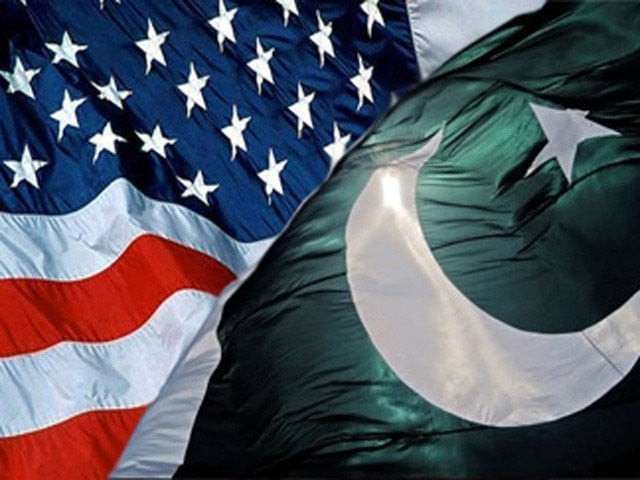Experts see bright future for Pak-US ties post-Afghan war
Pakistan 'enormous, resourceful, important country', ties must be recalibrated and made even-handed, says Fred Kempe

Experts and officials dealing with the relations between Pakistan and the United States expressed hope that the future was bright and that the low-key phase and post-Afghan war period allowed both countries to start afresh, de-hyphenate, and pluck low-hanging fruits.
They said this also provided an opportunity to form the ties – which have been topsy-turvy of late – on the right foot with a view to building cooperative mechanisms on issues of common concern like climate change.
They stressed the need for expending time and energising in bolstering cooperation in the fields of environment, economy, technology and agriculture.
They shared these thoughts at a two-day conference organised by the Centre for Security, Strategy and Policy Research (CSSPR), University of Lahore, The School of Advanced International Studies, Johns Hopkins University, South Asia Centre, Atlantic Council, and Engro Corporation.
The summit brought together Pakistani and American experts and officials to discuss a range of themes critical to the future of Pak-US relations.
The conference was opened by a welcome address delivered by CEO and President of Atlantic Council Fred Kempe. Lamenting the negative titles associated with Pakistan-US relations, Kempe said that Pakistan is an enormous, resourceful, and important country, and therefore ties must be recalibrated and made even-handed.
The conference featured a keynote address by the Ambassador of Pakistan to the United States, Ambassador Masood Khan. In his address, he reminded the audience that, start-ups have increased exponentially in Pakistan, and, coupled with the tech boom the country is witnessing, the development could prove to be propitious for US investors.
He added that the presence of US business giants in Pakistan, the burgeoning Pakistani-American community in the US, and the increasing trade volume between the two countries add strength, depth, and breadth to their relations.
He talked about the devastation caused by the recent floods in Pakistan, adding that the country is looking to benefit from US technology and expertise in becoming more resilient to climate change.
At the end of his address, Ambassador Masood stressed that both countries must work towards promoting conflict resolution, conflict/crisis management, and strategic stability in the region.
In his remarks, Special Representative for Commercial and Business Affairs, US Department of State Dilawar Syed, spoke to the impacts of floods in Pakistan. He said that dealing with them is the most compelling challenge for Pakistan. He also argued that this problem provides the US with an ideal opportunity to lend its succour to Pakistan, adding that most of what the US is giving will be spent on attenuating food insecurities caused by this raging, climate change-induced disaster.
The two sessions that followed the inaugural session were focused on discussing different perspectives, identifying areas of common concern, and shedding light on the opportunities provided by technology to the Pakistani economy.
The sessions were moderated by Non-Resident Senior Fellow, Atlantic Council Shamila Chaudhary and Director, Pakistan Initiative, Atlantic Council Uzair Younus.
The panelists included the Director, CSSPR, Dr Rabia Akhtar, Senior Adviser, South Asia, United States Institute of Peace, Daniel Markey, former Chief of Naval Staff, Pakistan Navy, Adm. Tahir Afzal, Director, China Programme, Stimson Centre, Yun Sun, former Chairman, Special Technology Zones Authority, Amer Hashmi, Co-founder and Managing Partner, Quona, Monica Brand Engel, CEO, EcoEnergy, Shazia Khan, and CEO, TRG International, Mohammed Khaishgi.



















COMMENTS
Comments are moderated and generally will be posted if they are on-topic and not abusive.
For more information, please see our Comments FAQ